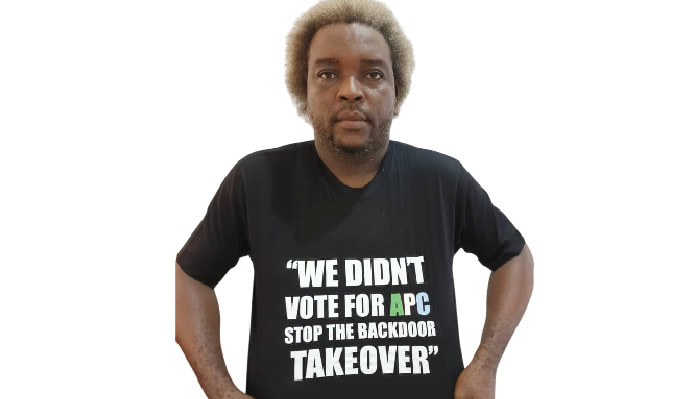Victor Ojei, erstwhile Senior Special Assistant to Delta State Governor Sheriff Oborevwori, vehemently opposes the Governor’s recent defection from the Peoples Democratic Party (PDP) to the All Progressives Congress (APC), citing betrayal of the Delta people and a blatant disregard for the “Meaningful Development, Opportunity for All, Realistic Reform and Enhanced Peace and Security” agenda upon which the Governor was elected. Ojei asserts that the defection, orchestrated by Governor Oborevwori and his predecessor, Ifeanyi Okowa, lacked consultation with the electorate, a critical misstep considering the mandate was granted based on the PDP’s platform and promises. He argues that such a significant political shift demanded engagement with the people who entrusted them with leadership. The lack of transparency surrounding this decision is further compounded by the state’s escalating insecurity issues, including rampant kidnappings and poorly equipped police forces, which Ojei believes the current administration is neglecting.
Ojei attributes the Governor’s sudden alliance with the APC, a party he previously criticized, to the ongoing investigation of former Governor Okowa by the Economic and Financial Crimes Commission (EFCC) for alleged misappropriation of funds. He posits that the defection is a strategic move to shield Okowa from prosecution, drawing parallels to past instances where politicians joining the APC seemingly received immunity. Ojei condemns this opportunistic maneuver, emphasizing that it prioritizes personal gain and political survival over the interests and future of Delta State’s citizens. He anticipates internal conflicts within the Delta APC due to the influx of powerful figures, including the Deputy Governor, former Deputy Speaker, and other prominent politicians, now vying for influence within the same party. This, he predicts, will lead to power struggles and ultimately weaken the party from within.
The anticipated implosion within the Delta APC, according to Ojei, will stem from the clash of these political heavyweights and the inevitable struggle for dominance. While acknowledging their individual influence, he believes their combined weight will ultimately lead to their downfall. Ojei emphasizes that true power resides with the people, and he anticipates a voter backlash in the 2027 elections as a consequence of the perceived betrayal. He draws parallels to the 2023 elections in Lagos and Kano, where organized voter movements demonstrated their power at the ballot box, suggesting a similar scenario could unfold in Delta State. He believes that public resentment towards the defection will fuel a “revolution” at the polls, effectively serving as a non-violent protest against the Governor’s decision.
Despite the perceived weakening of the Delta PDP following the exodus of key figures, Ojei remains confident in the party’s resilience. He points to ongoing reorganization efforts within the party, including meetings in Delta South and Ndokwa nation, as evidence of its resurgence. He further claims that some individuals who initially defected to the APC are already returning, disillusioned by the circumstances. Ojei emphasizes the growing public discontent with the defection, portraying a widespread feeling of betrayal among the electorate. He believes this sentiment will translate into a significant shift in voter support towards the PDP in the upcoming elections. Ojei actively mobilizes support against the Governor and the APC through the Delta Youth Alliance, a grassroots movement with a growing presence across the state’s 25 local government areas.
Ojei reveals that the Delta Youth Alliance leverages social media platforms and organizes regular meetings to mobilize and organize support across the state. He counters the narrative of overwhelming support for the APC, claiming that the large turnout at the Governor’s defection rally was artificially inflated by financial inducements. He alleges that individuals were paid to attend the event, suggesting that genuine public support for the APC is lacking. Ojei maintains that the PDP, along with the Labour Party and other opposition groups, are forming a coalition to challenge the APC in future elections. This alliance, he explains, aims to prioritize the needs of the people over power struggles, contrasting their approach with what he perceives as the APC’s focus on maintaining power.
Despite the current political landscape, Ojei remains optimistic about the opposition’s chances in future elections. He emphasizes the importance of a united front and the power of collective action to overcome the perceived advantages of the ruling party. He firmly believes that with the support of the masses, any candidate can emerge victorious, regardless of the ruling party’s influence or potential for electoral manipulation. He anticipates that the widespread public dissatisfaction with the APC’s governance, coupled with the united opposition, will pave the way for a significant political shift in Delta State.














